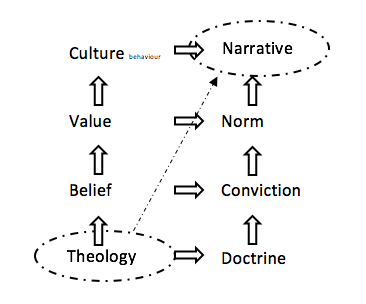My wife and I differ in taste when it comes to films and TV shows. One thing we have in common (we certainly have more than one thing in common), and that is the joy of watching a good crime drama on TV. Over the last couple of years, we have been watching Bosch. In a somewhat realistic way, it depicts crime investigation in LA. We follow Bosch, an unorthodox police investigator and divorced father of a teenager, as he is chasing criminals and at the same time trying his best to be involved in his daughter’s life. I realize, of course, that it’s just fiction. The reality is probably way tougher and more brutal than what is shown on TV. Bad things happen all around us, and maybe even with us.
The last episode of season six of Bosch, after solving another difficult case, ends with a beautiful version of Louis Armstrong’s classic; What A Wonderful World:
I see trees of green, red roses too. I see them bloom, for me and you. And I think to myself, what a wonderful world!
What a wonderful world! Is it, really? Is that what we see? When society has been shut down and we feel uncertain about the future. When we sense that pain and suffering is getting closer, and maybe even stronger.
What do you see? In Genesis chapter one we read about when God created the world. After each event, each day if you may, he concluded that it was good! Seven times in the creation account, Moses renders: “And God saw that it was good.” Number seven in the Bible represents something complete. Throughout God’s word, we see the number seven used that way. So, God says that everything he created is good.
The Fall happened, and sin entered the world. Everything that was created came under a curse because of the sin of one person. Now, did the fall change the origin of creation, God’s purposes with his creation, and did it alter the attributes of God’s creation? Also, there is the question of total depravity. These are probably questions for the systematic theologians. However, even if Calvinistic theology is right about our total lostness, does that change what God said about everything he created? I believe not. I believe that what God created is still good. We are definitely lost without God and in need of salvation. I know, because I once was lost. Jesus came and he carried the curse that belonged to us, and he took it on his own shoulders, on to the cross. He took our guilt and all our sin with him into the grave, and he rose again to give us life – a new creation, which is also good! Everything God creates is good.
What do you see? In Matthew 6:25-27 we are asked to recognize that God gives us everything we need. Jesus reminds us that we should consider and take into account that God is a good, good Father who cares for us, always. Right after Easter this year I felt pretty discouraged, almost to the point of being depressed. I talked to my wife about it, and she prayed for me. I told a friend as we went for a walk. I shared it in a small group when we prayed together on zoom, and they prayed for me and blessed me. It changed something in me. Again I was able to see God’s goodness in the midst of it all, and the melancholy was lifted from me. I felt that God was saying: “It is going to be okay, it’s going to be okay.”
Then there are situations and circumstances that cannot merely be vented, and suddenly everything feels good again. Sometimes life hits us with real challenges: crises, long-term conflicts or illnesses, and maybe even death. What do we see when things like that happen? During the last few years, I’ve had to deal with a chronic fatigue syndrome. I was living in the fast lane, but when I became sick, I was forced to find meaning in other things than responsibilities and positions. It has definitely been a painful process. However, something good has come out of it. I can see that now. It has changed my perspectives, my values and my priorities – but in a good way. It has been hard, for sure, and at times quite brutal, but it has also been good to experience God’s provision and goodness through it all. I see more clearly that God is faithful, and I see that God does not give up on us. I see that God can use us to bless others, regardless of our own strength, position and platform. I see that I can lean on his strength. Because when I am weak, he makes me strong.
What do you see? In Isaiah 43:19 we read:
“Behold, I will do something new, now it will spring forth; will you not be aware of it? I will even make a roadway in the wilderness, rivers in the desert.”
In Revelation 21:5, at the end of all things, God says:
“Behold, I make all things new!”
God has made something new (past), and one day all things will be new (future). Jesus came, and he established a new kingdom on earth, which is the kingdom of God. One day he will come again, and everything will be new! This is our eternal hope. In this tension between something new and all things new, in the now and the not yet, this is where we live, where we breathe, where we hope. I pray that this is what you see.


